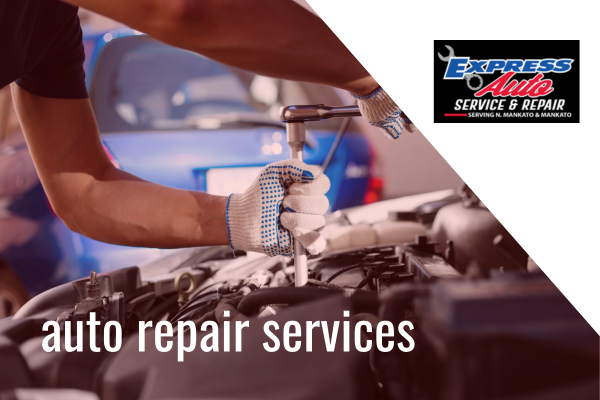All Categories
Featured
Routine engine tune-ups are crucial for maintaining your vehicle's efficiency, enhancing fuel effectiveness, and extending its lifespan. Whether you're a seasoned vehicle owner or a novice, recognizing the crucial aspects of an engine tune-up can aid you maintain your auto running efficiently for years. Below are some important tips to lead you via the procedure.
- Modification the Flicker Plugs. Ignition system are small but mighty parts that play an essential role in igniting the fuel-air mixture in your engine. Over time, they can put on out or become fouled, causing poor engine efficiency, lowered gas effectiveness, and difficult begins.
During a tune-up, examine your ignition system for wear and replace them as required. For the majority of cars, spark plugs ought to be replaced every 30,000 to 100,000 miles, relying on the type and material. Fresh trigger plugs guarantee effective burning and smoother engine operation.
- Examine and Change the Air Filter. The air filter is your engine's first line of protection against dust, particles, and other contaminants. A clogged or dirty air filter can limit air flow, creating your engine to function tougher and eat even more fuel.
Inspect your air filter throughout a tune-up and change it if it's unclean or past its recommended service period. A tidy air filter enhances engine efficiency and enhances fuel economy.
- Check the Fuel System. With time, your fuel system can build up dirt and carbon down payments, reducing engine performance and gas efficiency. Cleaning the gas injectors and gas lines throughout a tune-up aids maintain proper fuel delivery and burning.
You can use a fuel system cleaner or have a specialist mechanic execute a much more comprehensive cleansing. This step is particularly advantageous for older automobiles or cars and trucks often driven in stop-and-go web traffic.
- Examine the Belts and Hoses. Belts and pipes are critical for different engine functions, such as running the generator, water pump, and a/c. Throughout a tune-up, check for splits, fraying, or signs of wear on these components.
Replace any type of damaged belts and tubes to stop potential failures. A damaged belt or dripping hose can bring about engine overheating or loss of power, so dealing with these issues without delay is vital.
- Replace the Engine Oil and Oil Filter. Engine oil is essential for lubricating moving components, minimizing friction, and managing engine temperature level. Gradually, oil becomes contaminated and loses its performance.
As component of a tune-up, replace the engine oil and oil filter. Utilize the kind of oil recommended by your automobile's supplier and adhere to the suggested modification periods. Tidy oil keeps your engine running smoothly and protects against premature wear.
- Test the Battery and Charging System. A healthy battery is necessary for starting your auto and powering its electrical systems. During a tune-up, examine the battery's voltage and check the terminals for corrosion. Tidy the terminals if needed and ensure a secure link.
Furthermore, test the generator and charging system to guarantee your battery remains charged throughout operation. If your battery is weak or old, take into consideration replacing it to prevent unexpected failures.
- Flush and Replenish the Coolant. The air conditioning system controls your engine's temperature level, preventing it from overheating. Old or contaminated coolant can shed its efficiency, leading to possible engine damage.
During a tune-up, flush the old coolant and replace it with a fresh combination. Likewise, evaluate the radiator, thermostat, and hoses for leaks or damages. Maintaining the air conditioning system in excellent condition ensures your engine operates at the right temperature.

- Address Warning Lights and Uncommon Symptoms. Modern lorries are furnished with analysis systems that notify you to possible problems via dashboard caution lights. If your check engine light or any kind of various other alerting indicators are on, resolve them throughout your tune-up.
Additionally, focus on unusual symptoms such as weird noises, rough idling, or lowered gas effectiveness. An expert mechanic can identify and deal with these troubles throughout the tune-up procedure.
- Do Not Forget the Exhaust System. Your auto's exhaust system eliminates harmful gases from the engine and makes sure proper emissions. Evaluate the exhaust system for leaks, rust, or damage throughout a tune-up. A defective exhaust system can influence engine efficiency and bring about environmental and safety concerns.
- Use High-Quality Parts and Fluids. When changing parts or topping off fluids during a tune-up, always choose high-quality items that fulfill your automobile's specifications. Using poor components or incorrect fluids can negatively influence your engine's efficiency and long life.
Final Thought: Normal Tune-Ups Are Secret to Engine Health. Putting in the time to tune up your engine guarantees it runs successfully, saves gas, and reduces the threat of failures. Whether you do these jobs yourself or count on a trusted mechanic, regular tune-ups are an investment in your lorry's dependability and longevity. Adhere to these pointers, and you'll delight in a smoother, more reputable trip for many years ahead.
Latest Posts
Boost Your Building with Overhead Door Systems
The Benefits of Consistent Auto Maintenance at Montclare Auto Repair Saves You Money
Improve Your Building with Overhead Door Equipment
